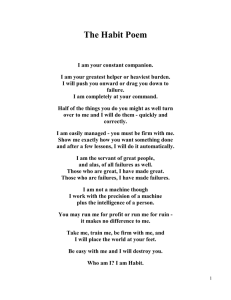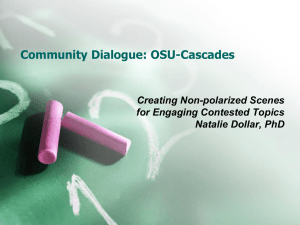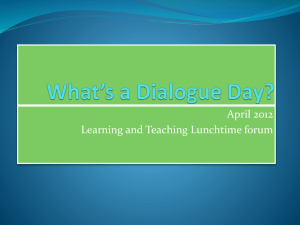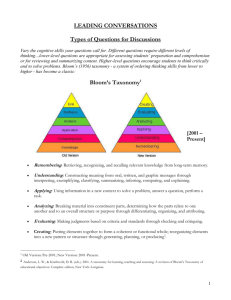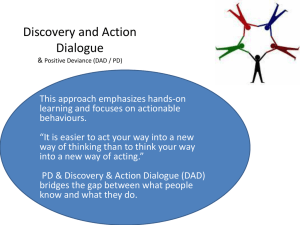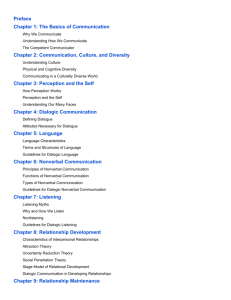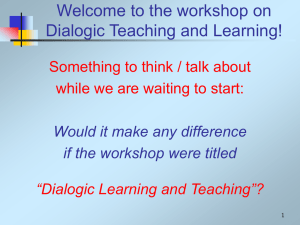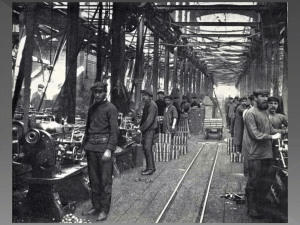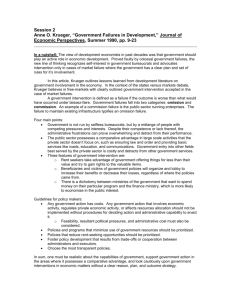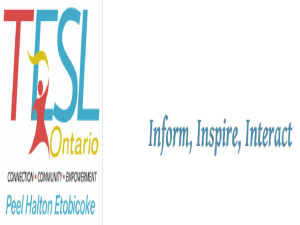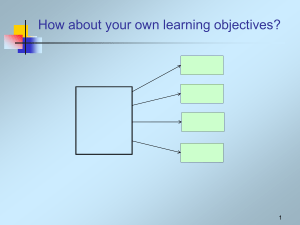IA Failure Panel
advertisement
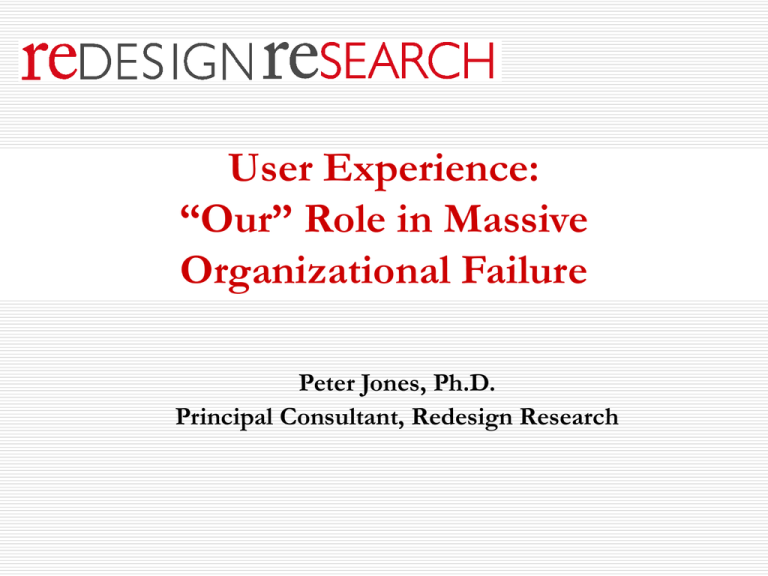
User Experience: “Our” Role in Massive Organizational Failure Peter Jones, Ph.D. Principal Consultant, Redesign Research Jumping to Conclusion: As UX/IA we play several roles: 1. User Advocate based on > Understanding 2. Design Lead > Competency 3. Project Advisor > Interconnectedness At various stages in project lifecycle, our roles, properly played, can prevent tragedy You could save the company, the product, or … BTW: The answer is: Influential, recursive, dialogic 2 What are Organizational Failures? Depends who’s defining “failure!” Organizations will rarely recognize as such. “When significant initiatives critical to organizational strategy fail to meet most or all of their stated goals.” Such as >>> Flagship product fails in market Merger failures Disastrous business mistakes 3 Type of Organizational Failures Products, Poor market understanding, features, or just bad timing: New Coke, Newton, Boo.com Projects: Failures of coordination & decision making Processes: Adopting wrong practice for need, or poor execution of known process People: Someone has to take the blame, right? Organizations need resilience, should not be dependent on individuals to succeed 4 A Case Study There’s a large automotive company … Spent years developing best practices Planned a next generation system for managing the dealerships Product evolved over tech changes, from NT client-server, to Web-based rich client Development team sequestered from the rest of the company to “innovate” undisturbed Kept the project secret from much of the company until ready to release 5 Organization / Management / Employees Strategic / Exec Management Product Management Project Process People Case Study – Automotive Systems Software Development Project A: New Dealer Management Project B: Auto Parts Pipeline Product Ongoing – people change roles Project C: Dealer Intranet Product A Released UX / UI IA 5-6 years 1-2 years 1 year Product B Released Product C Released 8-12 months 2-4 months Marketing 6 4-8 months Timeline Product or Organization? Bottom line was – the product failed. 2 years after release, did not acquire share Dealerships kept their old systems The implied “best practices” in the UI were not adopted or desired by most dealers New executive shut the product down. Auto company wrote-off > $50M, stock soared New user-centered design was initiated 7 What’s the UX Role? Remember the diagram? UX located “under” Development Current best-processes were employed: Dedicated UI designer UI architecture reviews Usability testing was performed: Project/product managers restricted scope of tests Testing restricted to UI interaction only Evaluated usability of each transaction: - Isolated, no assessment to current work context - “Not a problem” idea was to change work practices Impossible to interpret a failure from UX POV 8 UX is Influential Organizations are complex, intertwined Failure in one process will affect others Organizations need resilience, should not be dependent on individuals to succeed Not all decisions or dependencies are equal (Some have real leverage …) (Sometimes redundancy propagates the errors!) Product design <or> Design right product? How does UX play early warning role? Which UX methods sensitive to detection? 9 UX is a recursive process You get more than one chance to fail. Practices are repeated & improved, structures. But: Orgs are competitive, avoid learning Learning: Single-loop (Fixing things) vs. Double-loop (systematic reflection) What’s our recourse? How should UX recurse? Where do we challenge points of failure? How does UX / user knowledge help learning? 10 UX should be dialogic In the sense of: Surrounding product, org, or methods issues with perspectives Inspiring exchanges & inquiry into root causes & prescriptive change Motivating progressive learning What’s our dialogue? What are key points of dialogue in processes? Do WE listen? How does our listening impact? 11 Summary questions Product design <or> Design right product? How does UX play early warning role? Which UX methods sensitive to detection? What’s our recourse? How should UX provide feedback in the org? Where do we challenge points of failure? How does UX / user knowledge help learning? What’s our dialogue? What are key points of dialogue in processes? Do WE listen? How does our listening impact? 12
